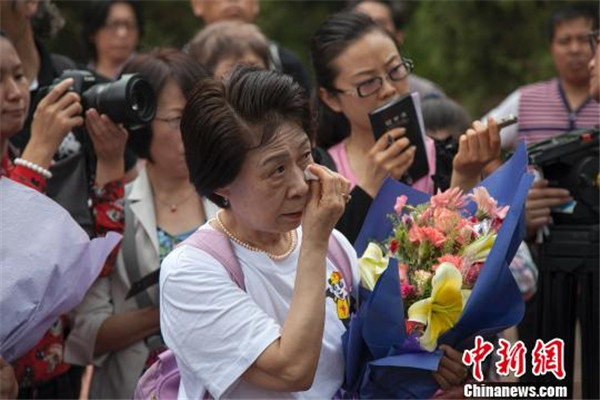Adoptees say love is borderless
By LI XIAOKUN (China Daily) Updated: 2015-07-16 07:27Children left behind by Japanese troops in 1945 tell how 'ordinary Chinese families' raised them
A tour to meet "ordinary Chinese families" who provided extraordinary care to thousands of children left behind by Japanese troops in 1945 left many in tears on Wednesday at a meeting in Beijing between China's vice-president and some of the survivors.
"Unfortunately, we are the victims of that war. But we are also the lucky survivors, and witnesses of history," Sumie Ikeda, head of the delegation of the Japanese who were left behind as children and raised in China, told Vice-President Li Yuanchao at the meeting at the Great Hall of the People.
Most of the abandoned children were left in Northeast China, where they were raised voluntarily by local residents. Many later returned to Japan after the normalization of relations in 1972.
About 35 million Chinese were killed or injured in the War of Resistance against Japanese Aggression (1937-45).
Some members of the 54-strong delegation wept during the meeting. Ikeda, 70, said: "I'm home again. I feel warm and at ease."
Li said, "The raising of Japanese children reflects the magnanimity of the Chinese people."
He recalled that one of his teachers at kindergarten in Fushun, Liaoning province, in the 1950s was a Japanese orphan taken in by a worker's family. The young woman later returned to Japan.
"So I can truly understand your emotions about ordinary Chinese families. I hope the sincere friendship can forge a good example of peace between the Chinese and Japanese people," Li said.
Though most of the Chinese foster parents have died, Ikeda said they will keep coming back to China until "the end of life".
Keiko Nakamura, 73, was adopted by her Chinese parents 70 years ago from a refugee shelter in Yanji, in Northeast China's Jilin province, in 1945. Another Japanese orphan, who became her brother, was adopted at the same time.
To raise the two children, their parents did many jobs to earn money. Nakamura remembers her father dragging a wooden cart filled with coal, sewing grass bags and working as a gravekeeper. In the freezing winters, she often awoke to find her mother knitting sweaters to sell.
Nakamura's parents supported her so she could complete her training as a teacher, and they helped her brother until he finished his college studies. Despite their poverty, she had a happy childhood because "Dad and Mom gave us whatever they had", she said.
Her Chinese parents died in the 1970s. In 1998, she was identified as a Japanese orphan and later moved to Japan.
"Parental love is borderless," Nakamura said in fluent Chinese. "We will never forget the kindness of my parents."





